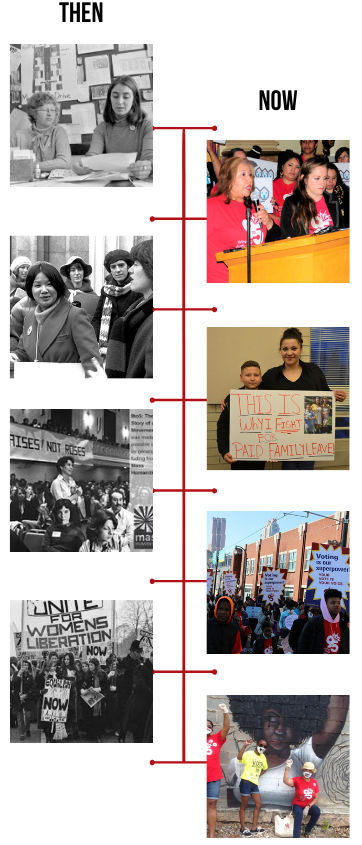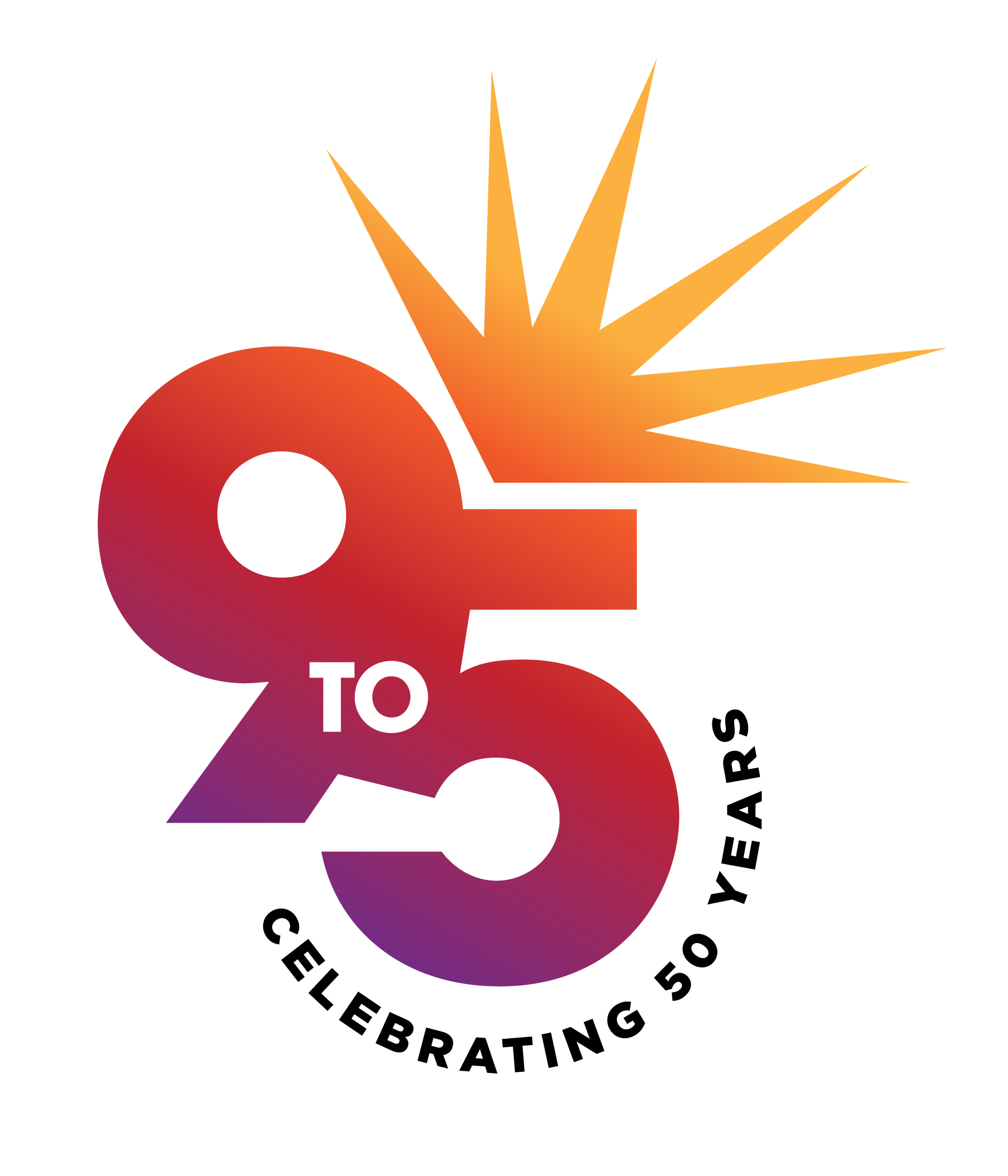
9to5 was founded in 1973 by working women who decided to fight for respect and equity in the workplace and beyond. Our origins are in the struggles of clerical workers who faced day-to-day challenges of sexual harassment, gendered perceptions of work responsibilities, and unequal career opportunities. These women organized – they banded together under the umbrella of 9to5 to collectively advocate for themselves and for a better future for working women.
48 years later – We continue to advocate for community generated solutions to our biggest economic justice issues, spearheaded by directly impacted working women and their families. Pay disparities, harassment, workplace discrimination, and the need for affordable, quality childcare, affordable housing, paid family leave and a living wage are still issues that working families face every day and continue to be core issues of 9to5.
Since our founding, our movement has only become more diverse and inclusive, as we reaffirm that our approach must be intersectional in the fight for liberation and justice. We need to be bold in calling out racial and gender injustices and how they directly tie into issues of economic stability and security. Women of color are disproportionately represented in the low wage workforce and most often feel the brunt of inequitable economic policies.
9to5 has been featured in two films – 9 to 5, the 1980s comedy classic featuring Dolly Parton, Lily Tomlin, and Jane Fonda as well as the 2020 documentary, 9to5: The Story of a Movement. The former’s script was based on conversations with 9to5 members from across the country on their experiences in the workplace. 9to5: The Story of the Movement provides a snapshot of our early history and some of the critical work we’ve done to advocate for working women and their families, featuring interviews with early founders and activists.
While both of these films focus largely on the early days and first couple of decades of our organization, our work has only continued to push the boundaries and advance economic justice by centering the voices of workers who are most often invisible: women of color, low-wage & gig workers, and working families.

